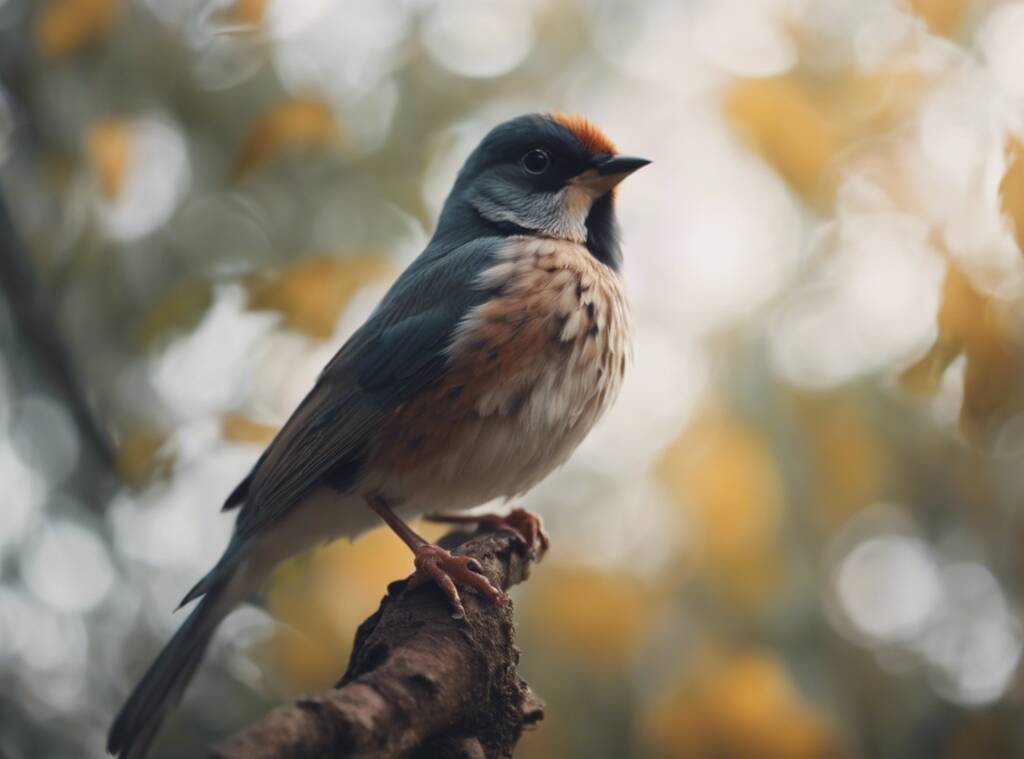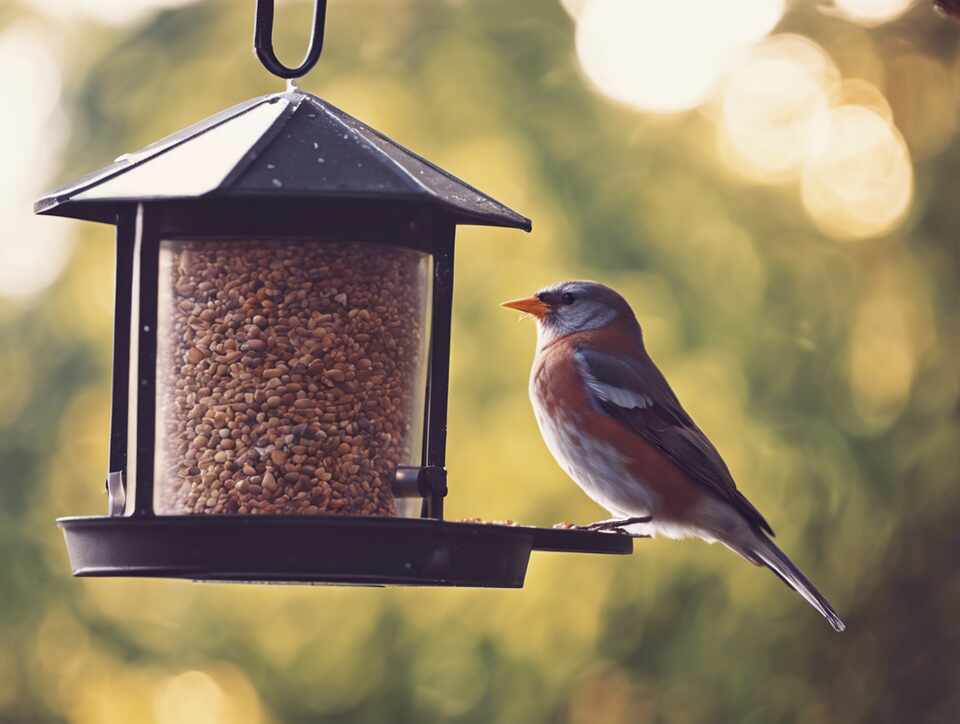The sense of smell is a fascinating aspect of the animal kingdom, often playing a crucial role in various behaviors and survival mechanisms. When it comes to birds, the question of whether they possess a sense of smell has long intrigued scientists and bird enthusiasts alike. Let’s dive into this intriguing topic and uncover the mysteries surrounding avian olfaction.
Table of Contents
Do Birds Have a Sense of Smell?
The Olfactory System in Birds
Birds have a well-developed olfactory system, although the extent of their sense of smell can vary significantly among different species. While some birds have a highly developed sense of smell, others rely more on their vision and other senses to navigate their environment. The olfactory bulbs in birds’ brains, responsible for processing smells, can be relatively large in species that heavily depend on their sense of smell.
Importance of Smell in Birds
Despite not relying solely on their sense of smell like some mammals do, birds still use olfaction for various purposes. For example, seabirds such as petrels and albatrosses have a keen sense of smell that helps them locate food sources like fish and squid over vast ocean expanses. Additionally, some birds use their sense of smell for navigation during migration, helping them find their way over long distances.
Species with Strong Olfactory Abilities
Certain bird species are renowned for their exceptional sense of smell. For instance, vultures have a remarkable ability to detect the scent of decaying flesh from great distances, guiding them to potential food sources. Kiwis, flightless birds from New Zealand, rely heavily on their sense of smell to forage for insects in the forest undergrowth, showcasing the diversity of olfactory adaptations among birds.
Factors Affecting Olfaction in Birds
Several factors can influence the strength of avian olfaction. For example, the size of the olfactory bulbs in the brain can indicate the importance of smell for a particular bird species. Additionally, the environment in which a bird lives plays a significant role – species that inhabit dense forests may rely more on vision and hearing, while birds in open habitats might utilize their sense of smell more prominently.
The Evolution of Avian Olfaction
The evolution of the sense of smell in birds is a complex and dynamic process. While some species have retained and even enhanced their olfactory abilities over time, others have experienced a reduction in their sense of smell as they adapted to different ecological niches. Understanding the evolutionary history of avian olfaction can provide valuable insights into the behavior and ecology of modern bird species.
Birds do indeed have a sense of smell, although the extent and importance of olfaction can vary significantly among different species. From using smell to locate food to navigate during migration, birds employ their sense of smell in diverse and fascinating ways. By unraveling the mysteries of avian olfaction, we gain a deeper appreciation for the remarkable adaptations that birds have evolved to thrive in a wide range of environments.
The Relationship Between Birds’ Olfactory Abilities and Survival Strategies
Birds’ Olfactory Abilities and Survival Strategies
Birds are fascinating creatures with a wide range of sensory capabilities that help them thrive in various environments. Among these senses, the question of whether birds possess a sense of smell has long been a topic of debate among researchers and bird enthusiasts. While birds are known for their excellent eyesight and acute hearing, the extent of their olfactory abilities has been a subject of scientific inquiry. Let’s delve into the relationship between birds’ olfactory abilities and their survival strategies.
The Olfactory System in Birds
The olfactory system, responsible for the sense of smell, varies greatly among different species of birds. Some birds, such as vultures and kiwis, have well-developed olfactory capabilities and rely on their sense of smell for finding food, detecting predators, and navigating their surroundings. On the other hand, birds like owls and hawks have relatively weaker olfactory senses compared to their visual and auditory senses.
Evolutionary Adaptations
The presence or absence of a well-developed sense of smell in birds is often linked to their evolutionary history and ecological niche. Birds that scavenge for food or live in environments with low visibility may have evolved strong olfactory abilities to locate food sources efficiently. For example, vultures are known for their exceptional sense of smell, which helps them locate carrion from great distances.
Foraging Behavior
The ability to detect and recognize scents plays a crucial role in the foraging behavior of birds. Some bird species use their sense of smell to locate hidden food, identify prey, or avoid toxic substances. For instance, seabirds like albatrosses rely on their sense of smell to locate food sources in the vast ocean where visual cues may be limited.
In addition to foraging, birds’ olfactory abilities can also contribute to their navigational skills. Certain migratory bird species use olfactory cues to navigate during long-distance migrations, helping them find their way across vast distances. The sense of smell may provide important environmental information that aids birds in orienting themselves and avoiding obstacles during migration.
Interactions with the Environment
Birds’ olfactory abilities also influence their interactions with the environment and other species. For example, some birds use scent marking to establish territories or attract mates, highlighting the role of olfaction in social behaviors. Additionally, the ability to detect predators or potential threats through smell can help birds avoid dangerous situations and ensure their survival.
While the extent of birds’ olfactory abilities may vary among species, it is clear that the sense of smell plays a significant role in their survival strategies and ecological interactions. By understanding the relationship between birds’ olfactory capabilities and their behavior, researchers can gain valuable insights into the fascinating world of avian sensory perception.
Conclusion
Birds, surprisingly, do have a sense of smell, although the extent and strength of this ability vary among different bird species. While historically overlooked and underestimated, recent research has shed new light on the olfactory capabilities of birds. Their sense of smell plays a crucial role in various aspects of their lives, from foraging and navigation to predator avoidance and social interactions. This often-overlooked sensory modality is a key component of their survival strategies.
The relationship between birds’ olfactory abilities and their survival strategies is intricate and fascinating. Birds that rely more heavily on their sense of smell tend to exhibit behaviors and adaptations that leverage this ability to thrive in their environments. For example, seabirds like albatrosses can locate their prey by scent alone, even over vast ocean expanses. In contrast, birds of prey such as vultures use their keen sense of smell to detect carrion from great heights, ensuring a consistent food source.
For many bird species, their olfactory abilities are crucial for navigation during long migrations. Homing pigeons, for instance, can navigate thousands of miles back to their home lofts by relying on odors in the atmosphere. This remarkable feat showcases the importance of olfaction in shaping birds’ survival strategies and behaviors.
Furthermore, birds’ sense of smell plays a significant role in detecting predators and avoiding dangerous situations. Some birds, like the American robin, can detect and avoid parasitic eggs within their nests by recognizing changes in scent. This ability helps them protect their offspring and ensure their genetic success, highlighting the adaptive significance of olfaction in birds’ evolutionary history.
The notion that birds lack a sense of smell is a common misconception that research has disproven. Birds indeed possess varying degrees of olfactory capabilities that are intricately linked to their survival strategies. From foraging and navigation to predator avoidance and social interactions, the olfactory sense plays a vital role in shaping the lives of avian species.
By understanding and appreciating the importance of this sensory modality, we gain a deeper insight into the remarkable adaptations and behaviors exhibited by birds in their natural habitats. Next time you observe a bird in flight or hear its melodic song, remember that there is more to these feathered creatures than meets the eye—they navigate their world not just with sight and sound, but also with the power of scent.



